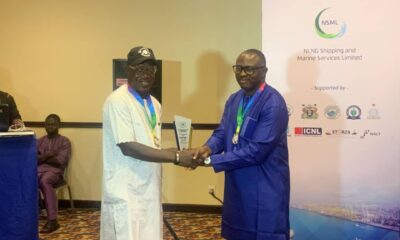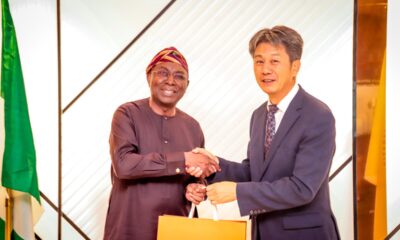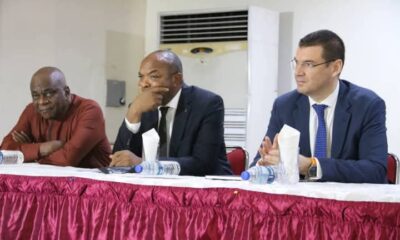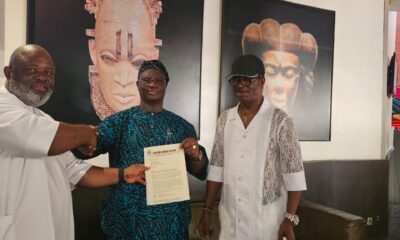Maritime
Abi’s Alleged Undemocratic Moves Sparks Crisis In Maritime Union
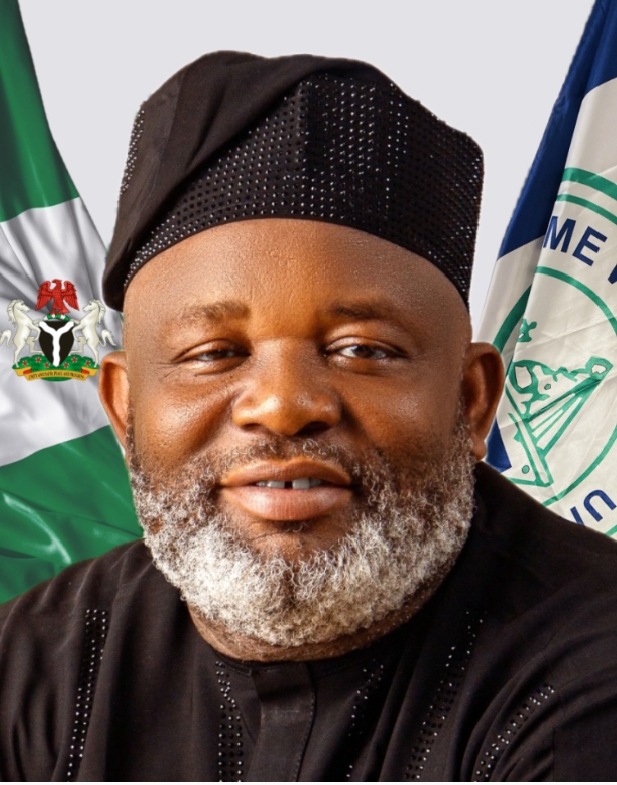
BY GBOGBOWA GBOWA
The Maritime Workers Union of Nigeria (MWUN) is facing a serious internal crisis, triggered by allegations of undemocratic practices under its new leadership. The situation is escalating, with court intervention halting upcoming elections and raising concerns about the union’s future stability.
The current turmoil within MWUN stems from leadership changes following the exit of Comrade Adewale Adeyanju, who led the union for eight years and was widely credited with maintaining peace and democratic norms. His successor, Comrade Francis Bunu Abi, assumed office amid expectations of continuity but has instead faced backlash for allegedly violating the union’s constitution.
The Dockworker Justice Forum—a faction within the dockworkers’ branch—has accused Abi’s administration of a committing a number of administrative and impeachable offences.
These includes alleged handpicking of candidates for district leadership roles, thereby bypassing democratic processes, and alleged attempts to bar legitimate members from contesting elective positions; thereby undermining the union’s constitution, which mandates free and fair elections.
These accusations led to a legal challenge at the National Industrial Court, which has now suspended all district elections until the case is resolved on January 11, 2026.
Insiders suggest that Abi’s approach may be influenced by a desire to consolidate power quickly and install loyalists across strategic districts. This tactic, while not unprecedented in Nigerian labour unions, marks a sharp departure from Adeyanju’s consensus-driven style. Some observers speculate that Abi’s team is trying to reshape the union’s power dynamics before opposition factions gain traction.

Abi reportedly has enjoys backing from certain senior officials within MWUN who benefited from his rise, external maritime stakeholders who prefer a more centralized union leadership, and younger union members who see Abi as a reformist; although this support is already waning amid the crisis.
However, the dockworkers’ branch—historically the most vocal and organized has become the epicenter of resistance, making the situation volatile.
MWUN has experienced internal rifts before, but this is the first major legal challenge to its electoral process in recent years. Under Adeyanju, disputes were typically resolved internally. The current court involvement signals a breakdown in internal conflict resolution mechanisms and sets a precedent for judicial oversight of union affairs.
Observers say if not handled responsibly and timely, the potential outcomes may be unpalatable. If the court rules against Abi’s leadership, it could trigger a wave of resignations, protests, and possibly a reconstitution of the union’s executive.
This may also lead to union fragmentation as continued disregard for democratic norms may lead to splinter groups or parallel leadership structures.
On the other hand, the crisis could also force MWUN to adopt more transparent and inclusive governance practices.
Tail or head, the MWUN crisis is a litmus test for labor union democracy in Nigeria. The outcome of the court case will not only determine the fate of district elections but could redefine how unions balance leadership authority with member participation.
With tensions high and factions entrenched, the union must tread carefully to avoid long-term damage to its credibility and cohesion.



